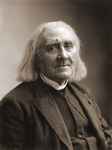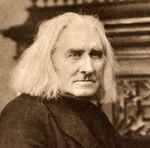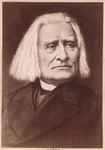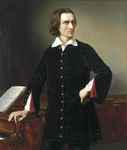Franz Liszt, Vladimir Ashkenazy - Stereo Laboratory London Classics Vol 31
Table of Contents
Download
Filename: franz-liszt-vladimir-ashkenazy-stereo-laboratory-london.rar- MP3 size: 36.6 mb
- FLAC size: 286.8 mb
Tracks
| Track | Duration | Preview |
|---|---|---|
| V. Feux Follets, In B Flat Major | 3:36 | |
| I. Prelude, In C Major / II. Molto Vivace, In A Minor | 2:58 | |
| Mephisto Waltz - Episode From Lenau's Faust | ||
| The Douze Études D'Exécution Transcendante - Excerpts | ||
| XI. Harmonies Du Soir, In D Flat Major | 10:50 | |
| X. Allegro Agitato Molto, In F Minor | 4:46 |
Video
Ashkenazy plays Liszt Harmonies du Soir
Ashkenazy plays Liszt 'Feux Follets'
Images


Catalog Numbers
GXP 9014Labels
London RecordsListen online
- écouter en ligne
- ouvir online
- lytte på nettet
- online anhören
- escuchar en línea
- kuunnella verkossa
- online luisteren
- ascolta in linea
- lyssna på nätet
Formats
- Vinyl
- LP
- Album
Companies
| Role | Company |
|---|---|
| Manufactured By | King Record Co. Ltd |
Credits
| Role | Credit |
|---|---|
| Composed By | Liszt |
| Piano | Vladimir Ashkenazy |
Notes
- Liner notes in Japanese
- Reverse top right hand corner: PSI in gold lettering
Barcodes
- Matrix / Runout (Makino): SDLBT 5126
- Matrix / Runout (Makino): SDLBT 5127
About Franz Liszt, Vladimir Ashkenazy






Born: October 22, 1811, Doborján, Austria-Hungary (present-day Raiding, Austria).
Died: July 31, 1886, Bayreuth, Germany.
Franz Liszt was a Hungarian composer, virtuoso pianist, conductor, music teacher, arranger, organist, philanthropist, author, nationalist and a Franciscan tertiary. He was a renowned performer throughout Europe, noted especially for his showmanship and great skill with the piano. To this day, he is considered by some to have been the greatest pianist in history. Liszt's musical invention went into territories which were then almost unexplored, in particular as regards harmonic research, as emerges from the late piano works, which led him to anticipate fragments of harmonies from the early twentieth century. His preference for program music is testified by the numerous symphonic poems he composed. Father-in-law to .
Real Name
- Ferenc Liszt
Name Vars
- Arranged Busoni
- F List
- F Liszt
- F. LIszt
- F. List
- F. Listas
- F. Lists
- F. Listz
- F. Lisz
- F. Liszt
- F. Lizst
- F. Lizt
- F.List
- F.Liszt
- F.ê¹È
- Ferenc (Franz) Liszt
- Ferenc Liszt
- Ferenc Lizst
- Ferenc-Liszt
- Ference Liszt
- Ferencz (Franz) Liszt
- Ferencz Liszt
- Ferensas Listas
- Ferenz Liszt
- Fr. Listas
- Fr. Liszt
- Fr.Liszt
- Franc List
- Francis Lists
- Franciszek List
- Franciszek Liszt
- Frank Liszt
- Frankz Liszt
- Frans Liszt
- Frant. Liszt
- Frantz Liszt
- Franx Liszt
- Franz Liezt
- Franz List
- Franz Listz
- Franz Litz
- Franz Lizt
- Franz von Liszt
- Friedrich Liszt
- LIszt
- List
- Listas
- Listz
- Listz F.
- Lisz
- Liszi
- Liszt
- Liszt F.
- Liszt Ferenc
- Liszt Ferencz
- Liszt Ferenz
- Liszt P.d.
- Liszt, F.
- Liszt, Franz
- Liszt-Schubert
- Liszt-Wagner
- Litz
- Litzt
- Lizst
- Lizt
- Lıst
- Offenbach
- Λιστ
- Лист
- Лист Ф.
- Лист Ференц
- Ф. Лист
- Ф.Лист
- Ф.Листа
- Ференц Лист
- Ференц Ліст
- Франц Лист
- فرانز ليست
- فرانس لیست
- ÕéóÄûê¹È
- ê¹È
- ݎ֯ɹ
Comments
6
Mindboggling technique. But I think the piano they gave Ahskenazy here sounds rather dry.
Ashkenazi plays it a touch slower than Evegy Kissen. And as amazingly impressive as the dynamic speed Kissen plays it, and he has incredible talent being able to play it that fast. But in my opinion, Ashkenazi playing it slightly slower gives the piece a little more of a touch of beauty and passion. Faster is not always better, past a certain point that is. But, faster is better with Fuex Follets until it gets to the speed in this video. This piece being played slower than Ashkenazi plays it would definitely make it sound less impressive and with less passion. Kissen can easily play this piece at Ashkenazi's speed because he already exceeded that point, and crossed over to playing it a touch too fast. But that's what's good about that, he can easily slow it down a notch because he'd already previously learned it at that speed. Both Ashkenazi and Kissen are piano genuises who have the ability to make the toughest pieces sound beautiful and like, Wow!!
Playing Fuex Follets at only half the speed Ashkenazi plays it would definitely make the piece sound more mediocre. I'm not even able to play it quite there yet, so I'm certainly not bragging about myself. But I have ideas about what sounds good to the listeners. Learning the notes of Fuex Follets is less than half the challenge, playing it at Kissen's and Ashkenazi's speed and with the right touch of the notes and passion is the even bigger challenge here. I'm working on this piece now, and can't even play it half Ashkenazi's speed yet, and am still missing notes. I have a looong way to go
Playing Fuex Follets at only half the speed Ashkenazi plays it would definitely make the piece sound more mediocre. I'm not even able to play it quite there yet, so I'm certainly not bragging about myself. But I have ideas about what sounds good to the listeners. Learning the notes of Fuex Follets is less than half the challenge, playing it at Kissen's and Ashkenazi's speed and with the right touch of the notes and passion is the even bigger challenge here. I'm working on this piece now, and can't even play it half Ashkenazi's speed yet, and am still missing notes. I have a looong way to go
Großartig! Ein fabelhafter Pianist.
This is my favorite super hard piano piece. If a complicated watch could sing this is how it would sound.
Superhuman!
This is one of Liszt's most difficult pieces to learn. All of those continuous nonstop sixty-fourth notes played allegretto, then many of them double note figurations, then many of them diminished. And numerous hand crossovers, treble and bass clef switch arounds thrown in along the way. And, did I mention that you need lightning fast fingers? But, it sounds utterly amazing when hearing someone who's mastered it play it, this one isn't even just mastered, it's perfected, and done with the best style and feeling
Just a typical day for an Asian, that's all.
Probably one of my favorite performances of this piece. Amazing!
What is this? Bam Bam Bam Bam BamBarabam.
So?
So?
"Nope"
Ashkenazy recordings are always special. Smoothest technique ever, but zero pompousness. And the result is a balanced, nuanced, thoughtful performance.
The first six bars are very uneven-if you listen carefully!?The rest incredible.
Is it coincidence that some of the so-called 'great'pianists have conveniently overlooked Feux Follets?!?(Not Richter,of course!)?
Is it coincidence that some of the so-called 'great'pianists have conveniently overlooked Feux Follets?!?(Not Richter,of course!)?
Ашкенази...one love
Effettivamente musica più difficile di quella di Chopin. Però quella di Chopin è più seguita dal maggior numero di ascoltatori perché l'elemento cantabile è più concreto mentre in Liszt negli studi il pianismo è più vaporoso per così dire.
Related albums
2010
2014
2005
2012
1998
2016

2014
1999
2006
1980
1972
1969

1950
1960
1969
1981
2008
1974